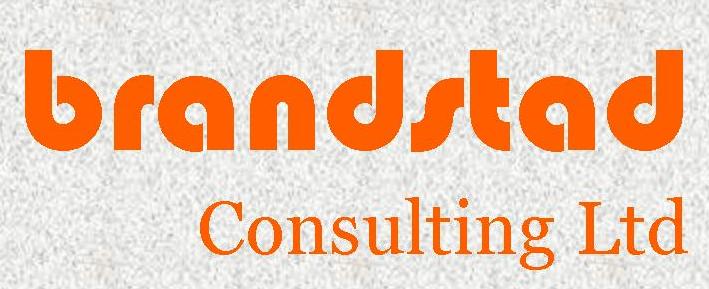5 Business Matters that will REALLY matter in 2017 !!
Posted by brandstad in Dec, 2016
As we prepare for the Christmas season for some it will be one of the busiest times of the year and for others it is quiet time to use for planning into 2017. Whatever it is for you it is important that you are aware of some key Government changes that will impact your business in 2017 and beyond
1
-
MTD Making Tax Digital – this is part of the government’s plan to modernise the tax system. They want all individual and business tax payers to have and be operating a single digital account for their tax affairs by 2020. This will remove the need to have multiple HMRC accounts for different things. The purpose is to help taxpayers to manage all their tax affairs in one place and reduce the administration burden and duplication for HMRC. HMRC will already have access to information about a tax payers PAYE, NIC and pension from their employer and Bank account interest from their bank or building society. They will then just need to log in and check that it is correct and complete. For businesses the process of registering new companies and submitting accounts will be more streamlined between HMRC and Companies House. Also by 2020 most accounting software will link directly to HMRC so as financial information is recorded it will be sent straight to HMRC so there will be no need to submit an annual return/accounts. Individuals and businesses would then have the option to pay as you go rather than making a huge lump sum payment after the end of the tax year. 50 million individuals and small businesses have access to a single digital account by 2020. This is an ambitious plan. There have been several complaints about HMRCs approach. A number of research studies have advised HMRC to start with larger companies first before smaller businesses who are less likely to be digitally aware and to have a rethink about the timescales it is working towards as it is too short and unrealistic. So far HMRC has ignored this advise and is going full steam ahead. Watch this space in 2017 year. Next time you log into your tax account you may see something completely different.
2
-
Auto Enrolment – if you have not heard of auto enrolment by now you must be living under a rock. Practically all businesses who employ at least one person (excluding the sole company director) must register their employees with an approved pension scheme and begin to pay into it. Most micro businesses would have their staging dates coming up in 2017 if it hasn’t already happened. If you are still not sure and want more information on auto enrolment click here or contact us on 07906343050
3
-
Apprenticeship levy – this is another initiative from HM Government which is designed to encourage increased take up of apprenticeships. It will be introduced in April 2017 and will be payable by employers with a payroll in excess of £3million. The current rate set is 0.5% (half a percent) of the total wage bill of the organisation and will be collected via PAYE and updated on a monthly basis. The Government will top up the fund by 10%. The levy is expected to double the funding that is available for apprentices to £3 billion per year by 2020. It is hoped that this will fund the government’s target of 3 million new apprenticeships. There is a new Digital k2Apprenticeship Service where employers can register to access apprentices from January 2017. Levy funding can only be spent on apprenticeship training and assessment with approved providers using a voucher system. If you are planning to deliver your apprenticeships internally then you need to become an approved provider. It can only be used for training and assessment and not for wages, travel and subsistence work placements or traineeship costs. Your company will have up to 24 months to spend the vouchers or they will expire. There is a £15,000 off set of the levy called the levy allowance. Any unused allowance can be carried over to the next month. If your company is part of a group it will have only one levy allowance of £15,000 and will have to agree in advance with HMRC how this will be split across the group. If you fall below the threshold and do not need to pay the levy you can still access the DAS and apprentices but you will be required to make a small contribution towards training costs 10%. If you are a small business with under 50 employees then you won’t need to pay anything if you take on a 16-18 year old apprentice. The government will pay for all the training costs. You can also use the levy for your existing workforce as long as it is relevant and appropriate to their role. For more information on how it will work click here.
4
-
Brexit – Chancellor of Exchequer in his autumn statement said the economy had contracted in the last quarter. Earlier predictions had been for a slight growth. Looking ahead post-Brexit, the Office of Budget Responsibility (OBR) said the overall performance of the economy will be affected by the choices the government makes about regulatory policies that are currently controlled by the EU. “These could move in either a growth-enhancing or a growth-impeding direction,” it added. While much is still uncertain, the OBR has constructed a “no referendum” counterfactual borrowing forecast. This alternative scenario calculated that the referendum result and exiting the EU will cost an additional £58bn over five years (£3.5bn 2016-17; £9.9bn 2017-18; 15.4bn 2018-19; 14.7 2019-20; and 15.2bn 2020-21).
5
-
Environmental laws and regulations: Nowadays it is impossible to ignore environmental issues whilst running your business as such issues will have either a direct or indirect impact on how and where you source your materials and how cost efficiently your run your business. In 2017 Environmental considerations will be more than ever at the forefront of any successful business. Here is a update of some of the pertinent news and laws relating to the environment.
In August 2016 Theresa May did a cabinet reshuffle as she became Prime Minister and now Rt Hon Andrea Leadsom MP is now the secretary of state for the department for Environment, Food and Rural Affairs, The Department of Energy and Climate Change (DECC) has been abolished and absorbed into the Department of Business, Energy and Industrial Strategy. Brexit will have an effect on a number of environment policies and laws in the future. Climate change has lead to high risk of flooding in the UK and if the strong EU legislation protecting these areas is withdrawn and not replaced by an equally strong UK alternative businesses and residents in the affected areas (which is projected to rise by 50%) would be under threat.
Why Is Europe’s Green Energy Plan a Failure? Before we actually leave the EU we still have to subscribe to its environmental laws but this article looks at some of the short comings of the latest EU Green Energy Plan which was published on 30th November. Environmental groups have come out in force against the EU’s green energy plan, published on the 30th of November, claiming that it fails to address fundamental problems with its current energy policy. The chief criticisms of the plan concentrate on the use of biomass in its renewable energy programme, claiming that the EU does not do enough to ensure that the fuels being used are sourced sustainably or responsibly. Furthermore, environmentalists also claim that in certain instances, these biofuels actually release more carbon than fossil fuels. – Read more…
About Brandstad Consulting Ltd
Brandstad Consulting Ltd provides professional business consulting and coaching services to medium sized businesses. Businesses in need of a business process review in order to improve operations have been using our services for over 10 years. Our key services are in the form of business strategic planning, building innovative business plans and business models for growth, assistance with raising finance for business expansion. We also specialise in developing environmentally sustainable business models. Speak to us today to see if we can help. info@bizcomp.co.uk www.brandstad.co.uk



